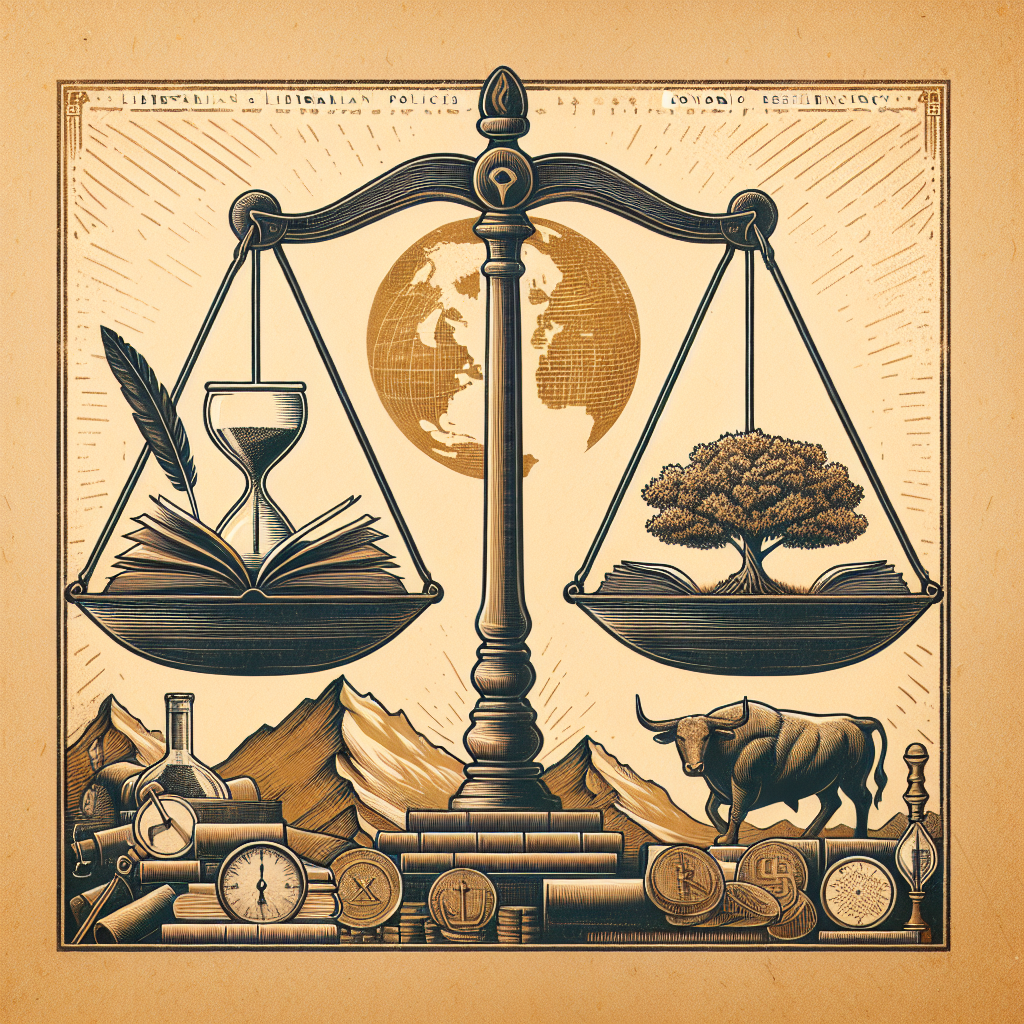Libertarian Policies and Economic Resilience: Lessons from History
In today’s complex economic landscape, discussions about government intervention versus free-market principles have been prevalent. Libertarian policies advocate for minimal government interference, emphasizing personal freedom and market-driven solutions. By reflecting on historical trends and case studies, we can gain valuable insights into the economic resilience that these policies often promote.
Understanding Libertarian Policies
Libertarianism is a political philosophy that prioritizes individual liberty, free markets, and limited government. At its core, libertarian policies focus on:
- Free Trade and Market Competition: Promoting open markets eliminates barriers to trade, encouraging competition and innovation.
- Low Taxes and Less Regulation: By reducing the tax burden and minimizing regulatory constraints, individuals and businesses can thrive.
- Personal Responsibility: Libertarians advocate for self-reliance, arguing that individuals should be accountable for their own lives and decisions.
These foundational principles shape economic systems that can adapt and flourish even during challenging times.
Historical Perspectives on Economic Resilience
History provides several examples where libertarian policies have led to economic resilience, particularly during crises. Examining these instances can shed light on how minimal government intervention can foster robust economies.
The Great Depression and the New Deal
One of the most significant periods in U.S. history is the Great Depression of the 1930s. As government intervention escalated through President Franklin D. Roosevelt’s New Deal, many economists saw how extensive regulation and spending often stifled economic growth.
In contrast, nations that adopted more libertarian approaches during economic downturns, such as Switzerland and Sweden, experienced quicker recoveries. Their limited government policies encouraged innovation and entrepreneurship, helping them rebound faster than their heavily regulated counterparts.
The Fall of the Soviet Union
The collapse of the Soviet Union in 1991 offers a striking illustration of how lack of economic freedom can lead to systemic failure. The centrally planned economy experienced severe stagnation due to restrictive policies.
Post-collapse, former Soviet republics that embraced libertarian principles of privatization and deregulation witnessed rapid economic growth. Countries such as Estonia adopted free-market reforms that significantly enhanced economic resilience and positioned them as key players in European markets.
The Role of Entrepreneurship in Economic Resilience
A cornerstone of libertarian policies is the encouragement of entrepreneurship. By fostering an environment where individuals can innovate and start businesses without extensive regulatory barriers, economies become more resilient.
Case Study: Silicon Valley
Silicon Valley epitomizes entrepreneurship bolstered by libertarian values. The region’s success stems from a culture that values creativity, risk-taking, and open competition. As a result, it has produced groundbreaking technologies and solutions that have had global economic impacts.
During economic slowdowns, resilient networks form, bolstered by a culture willing to take risks and innovate. Startups in Silicon Valley have continued to thrive, providing jobs and significantly contributing to the national and global economies.
Lessons from the 2008 Financial Crisis
The 2008 financial crisis revealed critical lessons about economic resilience. While government intervened with bailouts and heavy regulations, many libertarian economists argued that the root cause was excessive government interference in markets.
In the aftermath, regions that adopted libertarian principles, such as Texas, saw robust growth due to lower taxes and favorable business regulations. This demonstrates how attractive environments for businesses can create resilience against economic shocks.
The Modern Application of Libertarian Policies
Today, as economies recover from the pandemic, the debate over libertarian policies has resurfaced. Embracing these principles may offer strategies for building economic resilience moving forward.
Navigating Economic Challenges
As governments worldwide grapple with inflation, labor shortages, and supply chain disruptions, adopting libertarian policies can be instrumental in bolstering economies.
- Encouraging Decentralization: Allowing local businesses to thrive, free from excessive regulations, can lead to localized economic resilience.
- Fostering Innovation: By supporting tech startups and freelance industries, nations can spur growth and job creation.
Global Perspectives
Several countries have adopted or are transitioning toward libertarian policies amidst economic challenges. Nations like Singapore and Hong Kong emphasize free-market principles, offering lessons in how to achieve economic resilience. Their focus on low taxes, minimal regulation, and open trade has resulted in sustained growth and adaptability in the face of global changes.
Conclusion: Embracing Libertarian Lessons for a Resilient Future
Libertarian policies have much to offer in terms of economic resilience, especially as the world faces new challenges. Lessons from history reveal that minimal government intervention, support for entrepreneurship, and open markets can create robust economies capable of weathering storms. As policymakers ponder the best route to economic recovery, looking back at these historical cases can provide invaluable guidance for building a more resilient future.
By understanding the relationship between libertarian principles and economic resilience, we can better navigate the complexities of today’s financial landscape — paving the way for innovation, prosperity, and sustained growth.
Share this content:












Post Comment